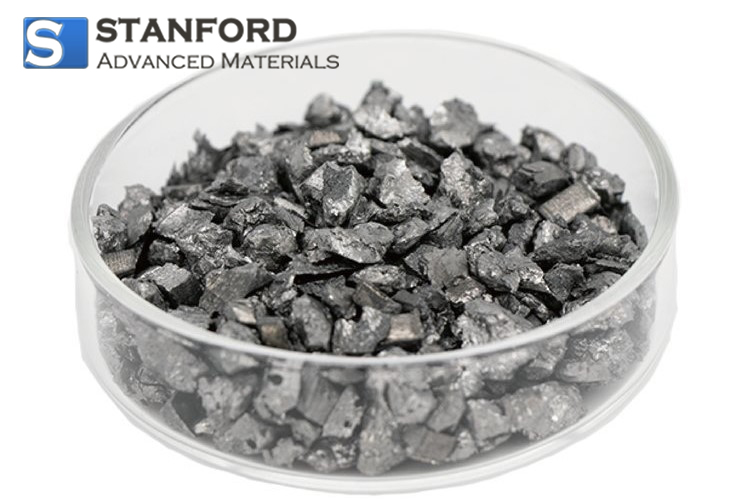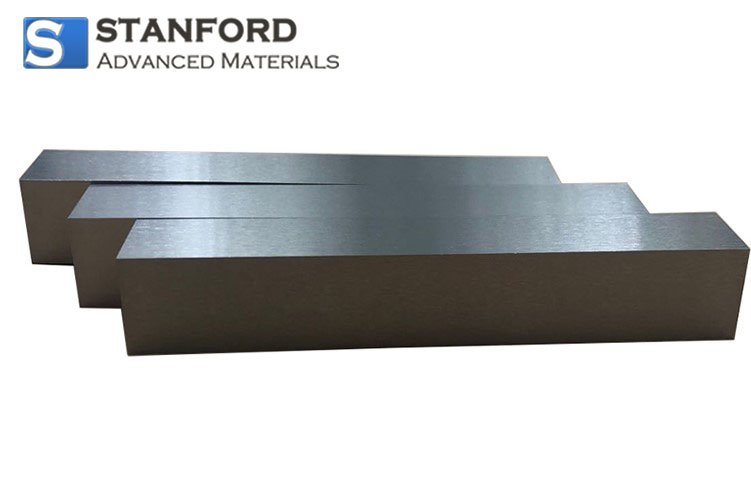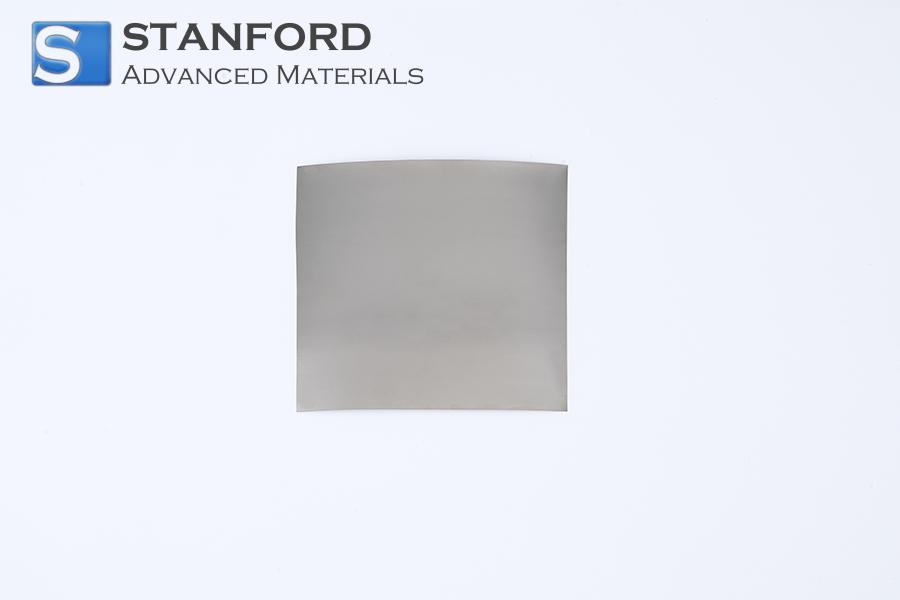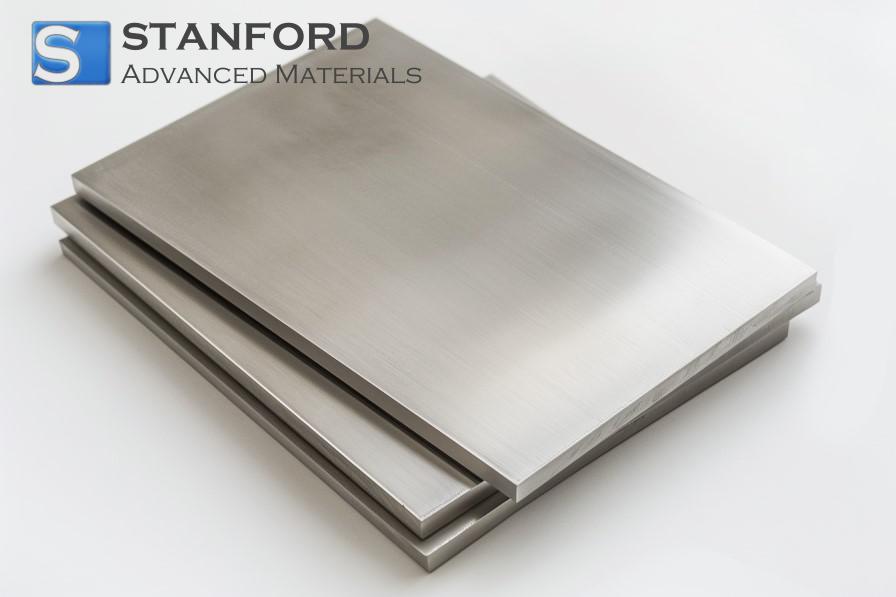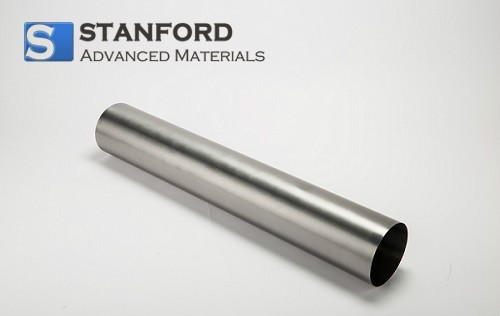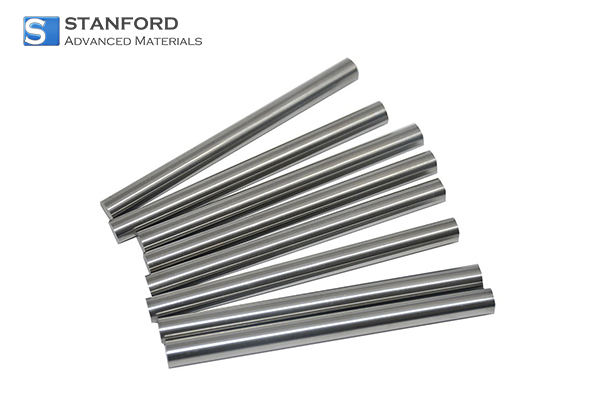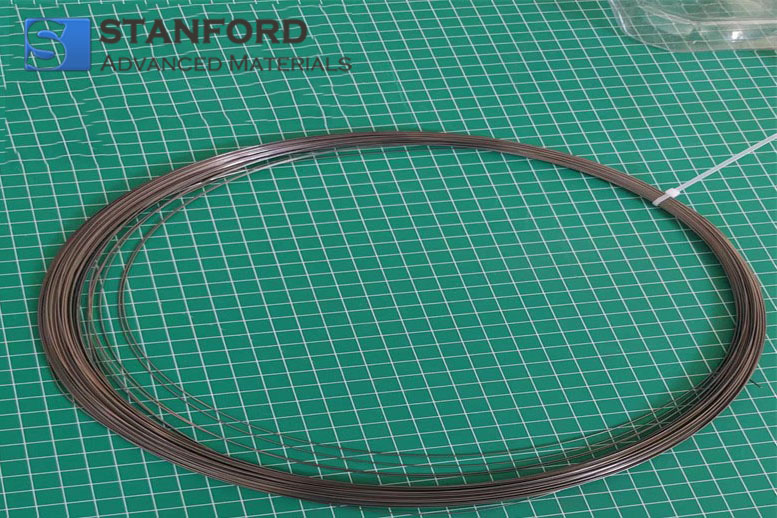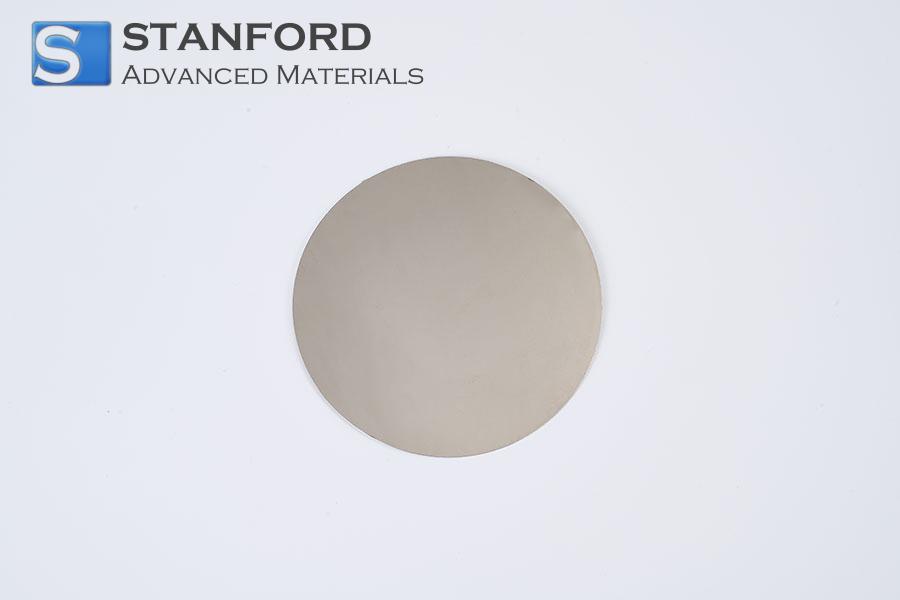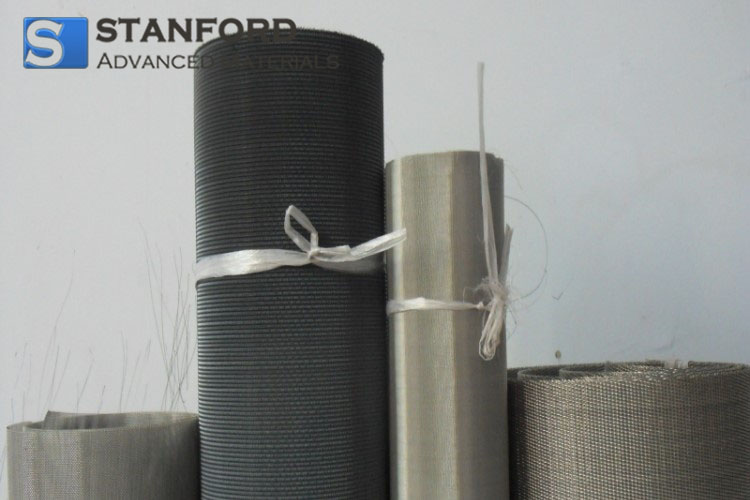VD0546 Erbium (Er) Evaporation Materials
| Catalog No. | VD0546 |
| Material | Erbium (Er) |
| Purity | 99.9% |
| Shape | Powder/ Granule/ Custom-made |
| MSDS/SDS |
Stanford Advanced Materials (SAM) is a leading manufacturer and supplier of high purity Erbium Evaporation Materials and a wide variety of evaporation materials. We offer our evaporation materials in powder and granule form. Customized forms are also available upon request.
Related products: Erbium Metal, Erbium Metal Powder, Erbium Oxide
Description:
Erbium is one of the rare earth elements among Lanthanide series. Pure Erbium metal is malleable, soft, and fairly stable in air. Erbium ions fluoresce pink light and are used in imaging and optical applications. Erbium oxidizes slower than some other rare-earth metals and has a high electrical resistivity. It is typically found in small quantities and in combination with other rare earths. As a pure metal, Erbium has limited applications, however, it can be used as an alloying element with titanium.
High-purity evaporation materials play a huge role in deposition processes to ensure high-quality deposited film. Stanford Advanced Materials (SAM) specializes in producing up to 99.9% purity erbium evaporation materials using quality assurance processes to guarantee product reliability.
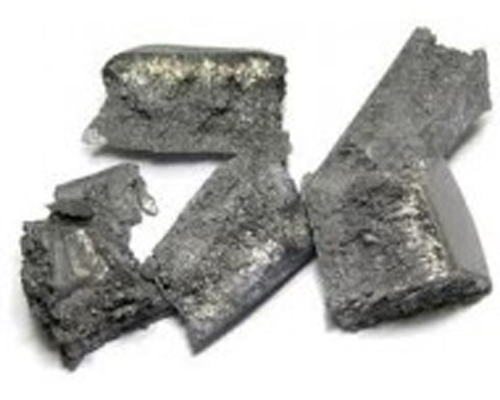
Specification:
|
Material |
Erbium |
|
Appearance |
Silvery White, Metallic |
|
Melting Point (°C) |
1,529 |
|
Thermal Conductivity |
15 W/m.K |
|
Coefficient of Thermal Expansion |
12.2 x 10-6/K |
|
Theoretical Density (g/cc) |
9.07 |
Applications:
1. Optical communication: used as dopant material in fiber optic amplifiers and fiber lasers to enhance the amplification and transmission of optical signals.
2. Lasers: used as dopant materials in solid-state lasers to produce infrared lasers and fiber lasers.
3. Optical Coatings: Used to prepare thin films for optical components, e.g., in coated mirrors, optical filters, and optical lenses.
4. Nuclear energy: In nuclear reactors, Erbium Evaporation Materials are used to control the nuclear fission process and improve the efficiency and stability of nuclear reactors.
5. Materials research: As experimental materials and reference standards, used to study the properties and applications of rare earth materials and promote the development of materials science.
Packaging:
Our evaporation materials are carefully handled to prevent damage during storage and transportation and to preserve the quality of our products in their original condition.
FAQs
3. FAQ
Q1: What are Erbium Evaporation Materials?
A1: Erbium (Er) evaporation materials are high-purity erbium in forms such as pellets, granules, or pieces, used in physical vapor deposition (PVD) processes to create thin films. These films are commonly applied in optics, electronics, and specialized coatings.
Q2: What are the main applications of Erbium Evaporation Materials?
A2: Erbium evaporation materials are widely used in:
Optical coatings (infrared optics, specialty lenses, and laser components)
Semiconductor applications (dopant in silicon-based devices)
Thin-film waveguides (telecommunications and fiber optic amplifiers)
Magneto-optical storage media (used in data storage applications)
Research and development (advanced material studies in nanotechnology and coatings)
Q3: Which deposition techniques are compatible with Erbium Evaporation Materials?
A3: Erbium can be deposited using:
Electron beam (E-beam) evaporation – Provides precise and efficient film deposition.
Thermal evaporation – Suitable for specific applications requiring lower temperatures.
LATEST RECOMMENDED
GET A QUOTE
Send us an Inquiry now to find out more Information and the latest prices,thanks!

